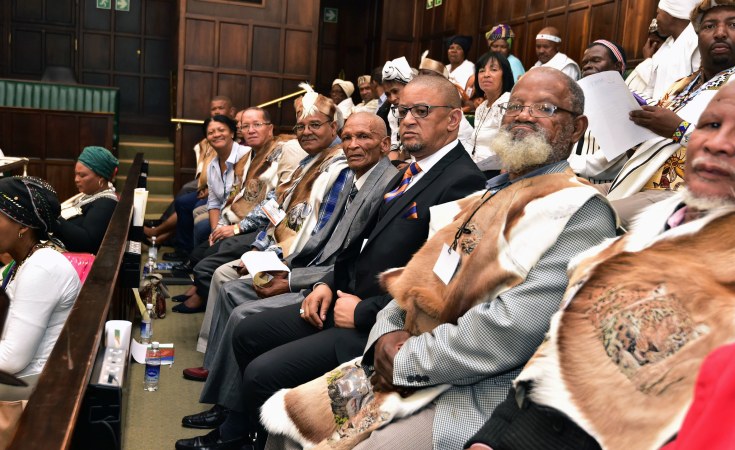The new Traditional Courts Bill has been redrafted to address fears that it gives traditional leaders too much power and women not enough, Deputy Justice Minister John Jeffery said on Monday.
The redrafted bill represented a collation of ideas and wisdom, he told reporters.
Changes included that traditional courts must be constituted of women and men, and for these courts to promote and protect the representation of women.
It would be introduced to Parliament as soon as possible.
Parties would be able to "opt out" of the traditional justice system, a provision not in the previous drafts of the bill.
They could however only opt out in the beginning of the process, Co-operative Governance and Traditional Affairs Deputy Minister Obed Bapela said.
Jeffery however said a summons to appear in a normal court could not simply be ignored. A person had to inform the clerk of the court that they wanted their matter heard in a traditional court.
The bill clarifies sanctions and their enforcement. The previous bill provided for fines to be imposed and for the "deprivation of customary law benefits". Now, the bill provides for compensation, as opposed to fines.
"Any community service ordered must be for the good of the community and not for the benefit of any member of the court or a traditional leader," Jeffery said.
Jurisdiction was clarified due to concerns that previous drafts entrenched former Bantustan boundaries.
Jeffery said provision was made for the review of procedural shortcomings in the high court, for instance if the court was not properly constituted or the parties were not allowed to be represented by persons of their choice.
What remained the same, however, was the prohibition of legal representation in traditional courts. This was because traditional court hearings were non-adversarial and lawyers might prolong the process.
Individuals could be represented by family members or friends, Jeffery said.
Read the bill here.
Source: News24


